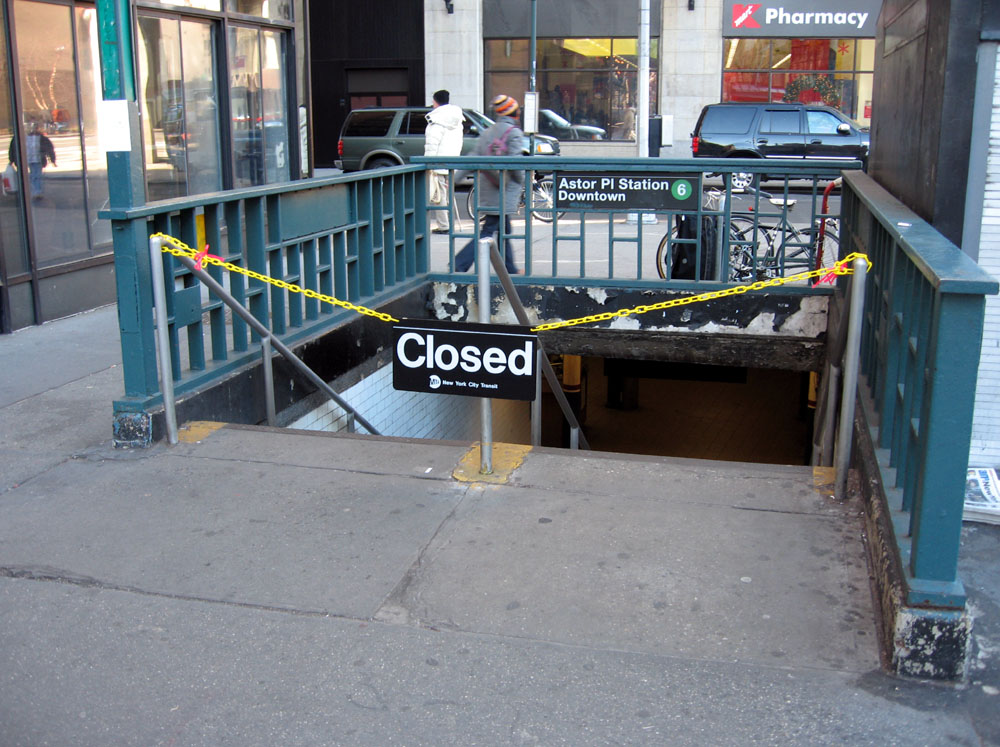The 2005 transit strike will forever mar Peter Kalikow’s MTA tenure. (Photo courtesy of flickr user NYC Comets)
On Monday, we came to celebrate Peter Kalikow (with a little urging from the MTA’s press department). On Tuesday, we come to bury him.
As Kalikow prepares to leave his post as chairman of the Metropolitan Transportation Authority, the papers are aglow with critical examinations of his tenure.
While we may remember Kalikow for his push to extend the subway system along 2nd Ave. and his unwavering dedication to the 2005 Transportation Bond Act, we won’t soon be forgetting the 2005 transit strike or the sketchy ways in which the MTA went about raising the fare in 2003. The Times has more about the transit strike and the bitter animosity that have since arisen between the MTA and the Transit Workers Union:
Gene Russianoff, the staff lawyer for the Straphangers Campaign, a transit rider advocacy group, said Mr. Kalikow sometimes hewed too closely to Mr. Pataki’s interests, allowing Albany politics to dictate policy. As an example, he cited the poor labor relations that characterized Mr. Kalikow’s years at the authority, especially after the strike that halted city bus and subway service for 60 hours in December 2005.
“That was one of the black marks,” Mr. Russianoff said. “He ended up with probably what was the worst labor relations in the 25 years we’ve followed the system. It was, I think, purely Pataki politics that dictated what happened.”
In my opinion, however, that transit strike pales in comparison with the economic circumstances surrounding the 2003 fare increase, a situation which the word “sketchy” defines perfectly. In 2003, the MTA raised the fares amidst cries from City Hall and Albany that the MTA has shifted around millions of dollars of surplus money to make it look like the fare hike was a necessity instead of a luxury.
While the Straphangers Campaign and others bring the suit eventually lost on appeal, as Gene Russianoff notes in Metro, the end result has been favorable; the MTA now must maintain a higher level of transparency than ever before.
So as Kalikow exits, sometimes, we’ll remember the way he spoke out against the lowball offer the Jets made for the Hudson Yards area and the way he’s tried to be more rider-friendly. At other times, as that $76 melts away every month, we’ll remember the fare hikes. It’s a tortured legacy for the man in charge of one of New York’s greatest assets, and his shoes will not be filled easily. But if the potential replacement took any lessons from the last six years, we’ll have an even better subway system come 2013.


2 comments
the friends of the high line, don’t give a shit about what’s north of 30th street, that video pissed me off, those yuppies don’t deserve such a nice park, a park which could easily become privatized!
oops, wrong entry hahaha